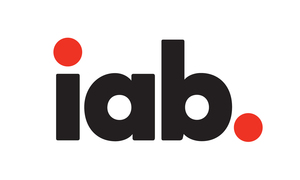NEW YORK, Nov. 8, 2021 /PRNewswire/ -- The COVID-19 pandemic has permanently reshaped the U.S. consumer economy. An overwhelming majority of American consumers are experimenting with new brands, and embracing new omnichannel shopping behaviors, which is setting the stage for permanently-heightened competition, according to a new study by IAB.
"The Media-Retail Cartel that limited the brands to which Americans were exposed and could acquire has been infiltrated and overturned by thousands of new brands, the limitless e-commerce shelf, millions of social media influencers, and a growing streaming-media persuasion machine that, contrary to conventional wisdom, favors advertising," said Randall Rothenberg, Executive Chair, IAB and the co-author of "The IAB 2022 Brand Disruption Report."
The report is the fifth annual study of what IAB terms "The Direct Brand Economy," the snowballing effect of changes in digital consumers, digital supply chain management, digital distribution, digital selling, and digital marketing.
Brand Disruption Study Highlights
- The "storeless" economy has accelerated 200-300%: The pandemic accelerated the shift to e-commerce. It's almost at $1trillion in annual spending, and will represent nearly a quarter of all shopping in the next few years.
- Retail media networks woo disruptor brands and encumber legacy brands: Established retailers are wooing disruptor brands with preferential treatment in their retail media networks in an effort to fight for the business of Gen Z and millennials, who rarely go to retail to discover brands. Nearly half of Big Brands (vs. 29% of Disruptors) spending with retail media networks say retailers are requiring them to buy ads there.
- Delivery times shrink to 15-minutes: Brick-and-mortar retail is shifting to an Amazon-like never-ending instant gratification machine, an "On-Demand Economy" model built around DTC delivery times as short as 15-minutes.
- The barrier between physical and digital shopping is now completely eradicated: Local delivery, click-and-collect, and BOPIS (buy online, pick up in store) are up 45%, 52%, and 125% respectively.
- Big Brands Use DTC Playbook: Big brands are racing to reinvent themselves, with eight out of 10 brands now working with influencers — with the largest growth among nano-influencers.
"Our 2022 Brand Disruption Report proves categorically that brands matter more than ever — but it's a radically different world now," said Chris Bruderle, Senior Director, Research & Analytics, IAB. "The new reality is permanent, there exists a 'no-rest-for-the-weary' competition for share among incumbents, disruptors, and their marketing partners."
Consumer Privacy Battles Are Upending Marketing Planning
95% of brands are adjusting their data strategies because of political and browser pressures over privacy. That pressure is driving an advertising gold rush to streaming video. 84% of advertising buyers increasing spend on CTV say consumer privacy issues contributed to their increases. The race to first-party data is on, with nearly twice as many incumbents as disruptors increasing their data investment, resources, or initiatives since the COVID-19 outbreak began.
Who will own the future? Disruptor brand holding companies aspire to become the next P&G
No less than seven emerging DTC holding companies are vying to become the Procter & Gamble of the Direct Brand Economy, and have accrued hundreds of millions of dollars in funding this year: Thrasio, Berlin Brands, Elevate Brands, Suma Brands, Branded, Perch, and Foundry.
The full report will be released at the Annual IAB Brand Disruption Summit held Monday, November 8 through Wednesday, November 10, 2021, and is available here.
About IAB
The Interactive Advertising Bureau empowers the media and marketing industries to thrive in the digital economy. Its membership comprises more than 650 leading media companies, brands, and the technology firms responsible for selling, delivering, and optimizing digital ad marketing campaigns. The trade group fields critical research on interactive advertising, while also educating brands, agencies, and the wider business community on the importance of digital marketing. In affiliation with the IAB Tech Lab, IAB develops technical standards and solutions. IAB is committed to professional development and elevating the knowledge, skills, expertise, and diversity of the workforce across the industry. Through the work of its public policy office in Washington, D.C., the trade association advocates for its members and promotes the value of the interactive advertising industry to legislators and policymakers. Founded in 1996, IAB is headquartered in New York City.
SOURCE Interactive Advertising Bureau (IAB)

Related Links
WANT YOUR COMPANY'S NEWS FEATURED ON PRNEWSWIRE.COM?
Newsrooms &
Influencers
Digital Media
Outlets
Journalists
Opted In




Share this article